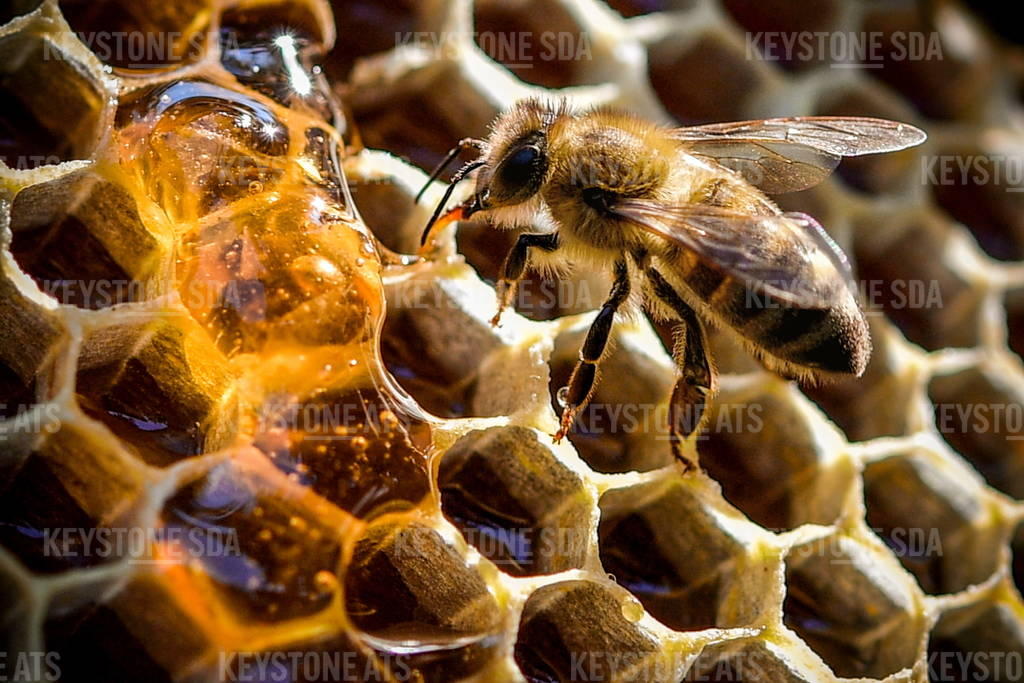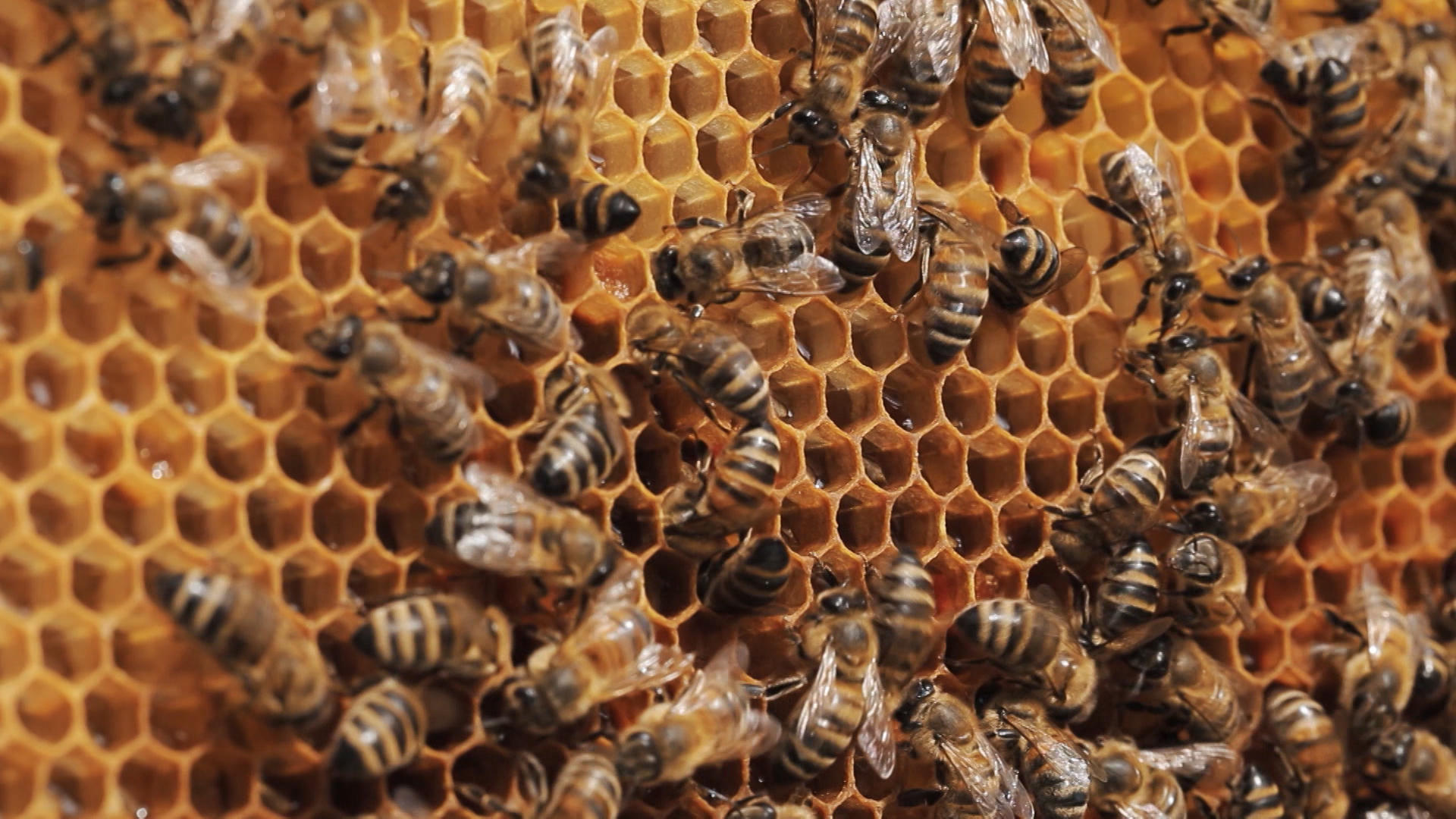
Mites and insecticides prove killer combo for honey bees

Swiss researchers have shed light on the whys behind the rapid decline of the honey bee with a study focused on the combined effect of two key stressors.
Researchers from the Institute of Bee Health at the University of BernExternal link and the COLOSS honey bee research associationExternal link studied the “combination effect” of two stress factors: insecticides and a type of mite.
The researchers treated workers in honey bee colonies with two selected insecticides (neonicotinoids). These had no influence on the weight and longevity of the bees, according to a statement by the University of Bern on Tuesday.
However, as soon as the Varroa mite entered the mix, a harmful interaction of the two factors could be demonstrated.
The researchers have published their results in Scientific ReportsExternal link, the open access platform of the scientific journal Nature.
Winter bees particularly affected
Winter bees, which are born in autumn to ensure the survival of the colony over the coldest months, were particularly hard hit,
The negative “combined effect” not only led to a shorter lifespan of the winter bee workers, but also took a toll on body size. Body size is crucial to how well winter bees can defend their body temperature against the cold.
+ A look at the bee that thrives in Swiss Alpine valleys
Sustainable solutions in demand
The researchers are therefore calling for sustainable solutions in agriculture.
“Reduced use of insecticides and improved control of the Varroa mite are urgently needed,” says Lars Straub, lead author and post-doctoral fellow at the Institute for Bee Health.
The western honey bee (Apis mellifera) is by far the most important human pollinator. In recent years there have been high losses of honey bee colonies worldwide.
The Varroa mite originates from AsiaExternal link, where it affects the eastern honey bee. It is considered the most dangerous biotic threat to honeybees worldwide.

More
The recovery of the bees

In compliance with the JTI standards
More: SWI swissinfo.ch certified by the Journalism Trust Initiative


























You can find an overview of ongoing debates with our journalists here . Please join us!
If you want to start a conversation about a topic raised in this article or want to report factual errors, email us at english@swissinfo.ch.